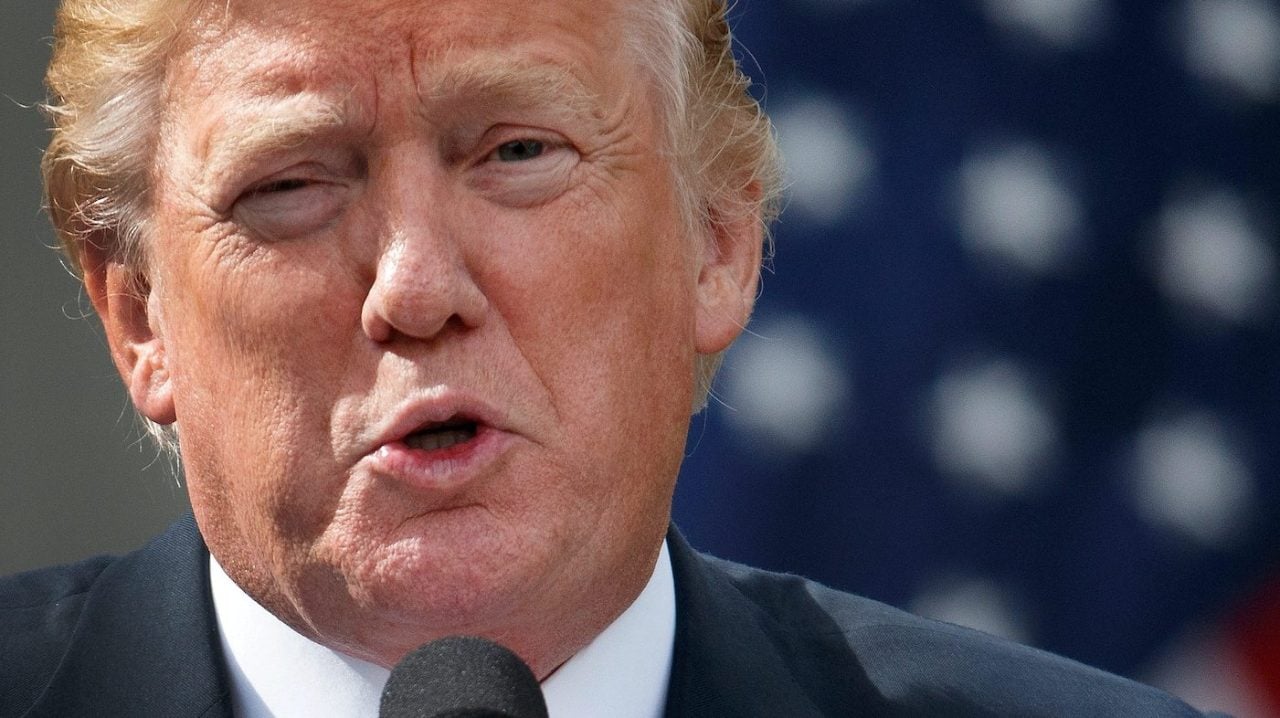Tax cuts and pandemic relief measures enacted during the Trump administration added $8.4 trillion to the national debt over the 10-year budget window, according to a study released Wednesday by a top budget watchdog group.
Discretionary spending increases from 2018 and 2019 added $2.1 trillion, Trump’s signature Tax Cuts and Jobs Act added $1.9 trillion and the 2020 bipartisan CARES Act for pandemic relief added another $1.9 trillion, the Committee for a Responsible Federal Budget (CRFB), a Washington think tank, found in a study released earlier this month.
“Of the $8.4 trillion President Trump added to the debt, $3.6 trillion came from COVID relief laws and executive orders, $2.5 trillion from tax cut laws, and $2.3 trillion from spending increases, with the remaining executive orders having costs and savings that largely offset each other,” budget experts with the CRFB wrote in a summary of the report.
The only significant deficit reduction enacted by the Trump administration noted in the report was due to tariffs levied on a variety of imported goods, which are calculated to have brought in $445 billion over 10 years.



Taxes don’t fund spending tho. Taxing billionaires should be about just taking money away from them.
Taxes actually have two purposes, guaranteeing money circulates and is legitimate, and removing money from the economy. That’s it basically. With the caveat that local taxes do fund spending many times, like for school budgets etc.
But all federal spending is completely decoupled from taxes. The government just “prints” the money. They actually digitally credit certain accounts with the money, but it’s the same shit.
Like if the government passes a budget of 1 billion for infrastructure, they will literally just change some numbers in “key strategic accounts”, like big banks, government agencies, ministries etc. That money doesn’t come from anywhere, it’s literally created out of thin air.
And if all that new money is absorbed by productive forces, there is 0 inflation. Only if the money is absorbed by unproductive forces that inflation happens. Like the money just going to rich people’s pockets, there will be inflation. Cause they will just buy more and more assets, without any new assets being created by the “new money”. And well, more demand for the same amount of goods is inflation.
What kinda nonsense claim is that?? Of COURSE they do!
More absolute nonsense. Taxes are paying your part to live in a civilized society. Public programs, which are PART of the overall economy, are an example of what taxes do.
Of the dozens of times you were dropped on your head as a child, how many would you say were intentional?
Like 99% of all money
That’s not how money, absorption, production or inflation works
That’s not it either. The majority of inflation is greedflation.
deleted by creator
Bro go read a modern macroeconomics book. What are you on? You’re literally like 200 years behind the entire fucking field. Not even the most orthodox economists would agree with you.
All I said was based on Keynesian theory and MMT. Y’know, two of the major theories, which are the most accepted around the world among economists.
And again, I did say local taxes do fund spending. But taxes definitely, 100%, don’t fund federal spending of nations who have sovereign currencies. Sure, El Salvador can’t just print money for their budget, but the US, China, Brazil, Japan etc. all can.
Oh you poor thing lol. You think anything related to the study of economics is anything better than flailing around like a fish while applying theories on paper that never work IRL lol.
Then again, the only people I’ve ever seen get into economics was middle class rich folk who think any of it is true to justify their uselessly inflated salary to people who actually do the work.
https://www.emerald.com/insight/content/doi/10.1108/IJSE-04-2018-0221/full/html
https://nonprofitquarterly.org/reconnecting-economics-education-with-todays-global-realities/
https://en.m.wikipedia.org/wiki/Schools_of_economic_thought
https://www.danerwealth.com/blog/the-terrible-track-record-of-wall-street-forecasts
I really don’t understand your point. Yes, Wall Street economists are bad at predicting the future. Marxists are the clairvoyant ones, everyone who knows anything about economics knows that. Orthodox economists make models and calculations to make rich people feel better about stealing from everyone and destroying the planet. But MMT, Keynesians and Marxists understand that you can’t model the economy, calculations only go so far.
But Wall Street and orthodox economists are usually _micro_economists. They don’t understand macroeconomics, or material reality as a whole, because they like almost all academics in function of capital are compartimentalised into their specialisations and never peek out.
But you can’t say studying economics is useless… that’s insane. That’s like saying studying society is useless. You perhaps completely misunderstand what the economy is.